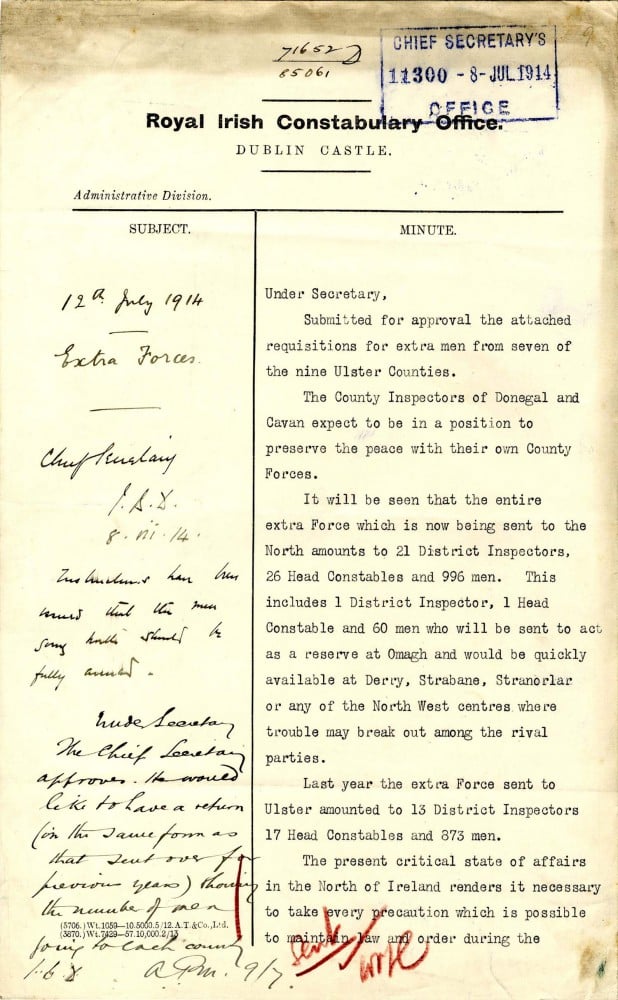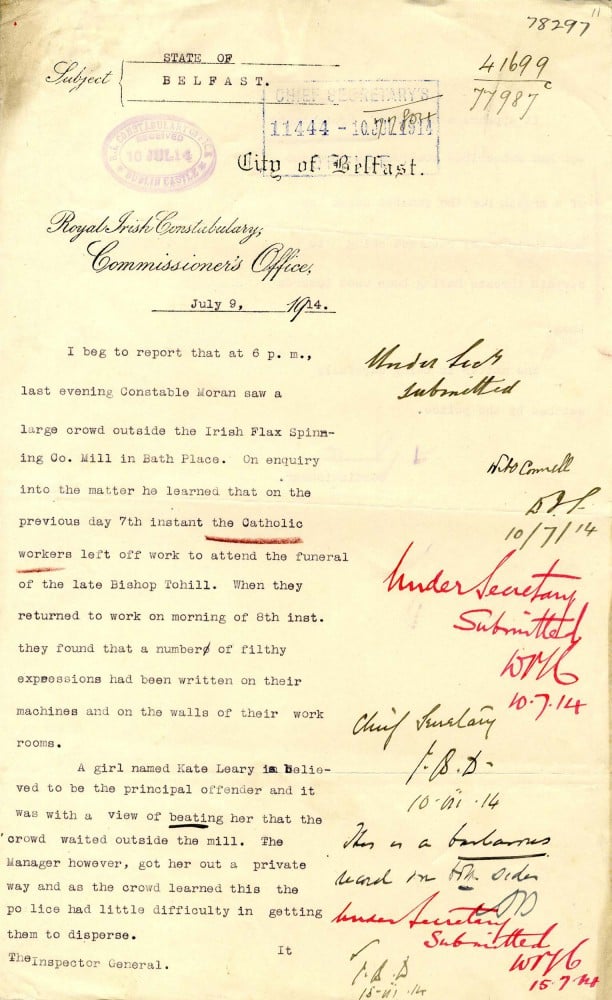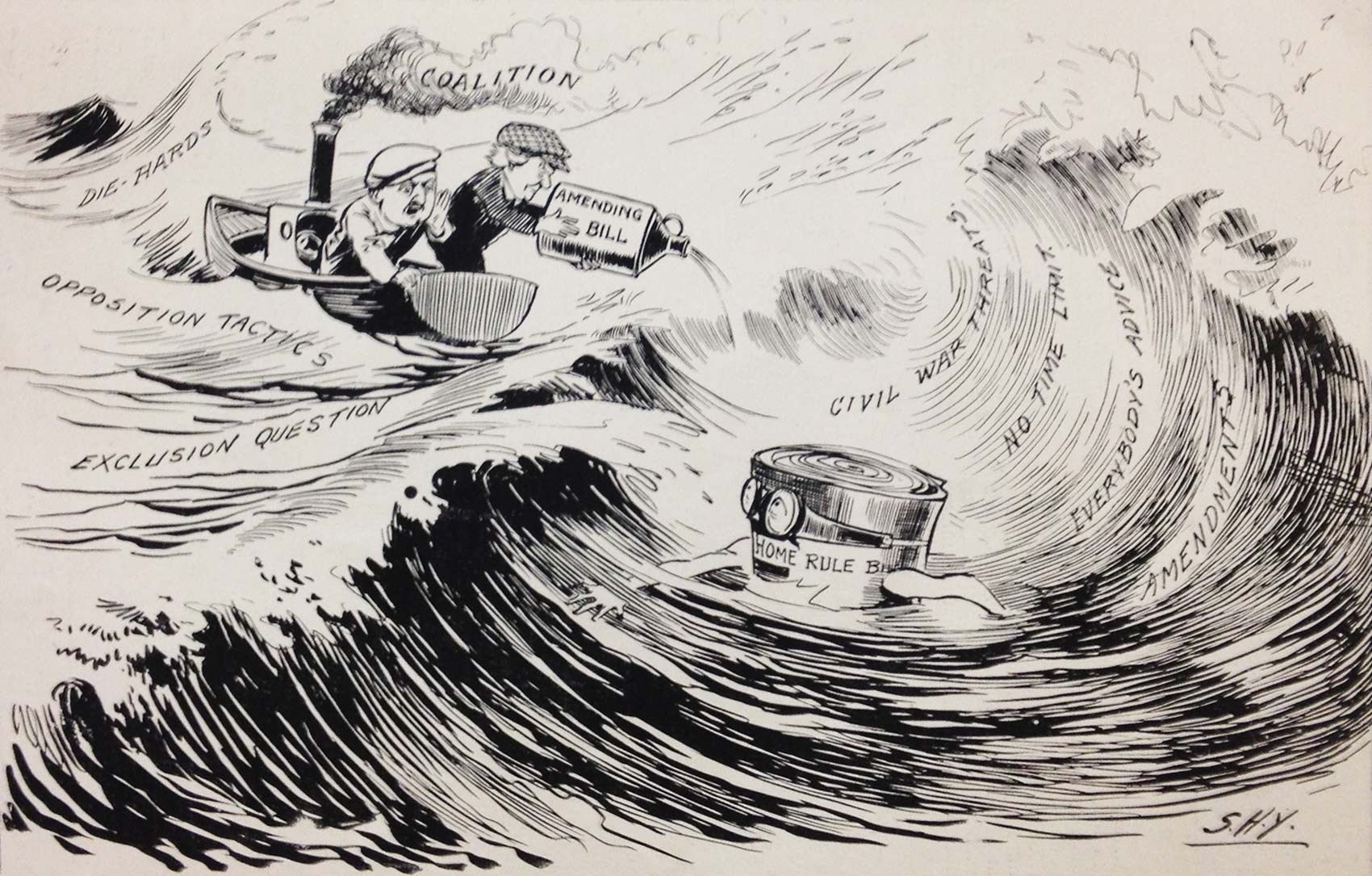Home Rule Amending Bill passes through House of Lords
Lord Dunraven proposes suspension until convention meets
London, 15 July 1914 - The House of Lords Amending Bill has passed through the House of Lords, but not before one last controversy.
The Lords accepted, without division, the addition of the new clause to the Bill.
This clause, moved by Lord Dunraven declared that the Government might, by an Order in Council, suspend the operation of the Home Rule Act until a commission had reported on the constitutional relations of Ireland to the other parts of the United Kingdom.
Proposing his initiative, Lord Dunraven said that he was begging his colleagues in the chamber to give Ireland a chance of seeing whether an agreement could be come to at the very end.

|

|
Two documents illustrating the growing unease in Ulster:
(L) Minute on the strengthening of the RIC in the region because
of the 'present critical state of affairs'. (R) RIC
report on an incident at the Irish Flax Spinning Mill, Belfast.
Catholic workers who left work to go to the funeral of Bishop
Tohill returned to find filthy expressions written on their
machines and on the walls of their work rooms. Click to view full
documents.
(Images: National Archives of Ireland, CSO/RP 1914, Box 5500)
Responding to Lord Dunraven’s motion, Viscount Morley said that he sympathised with its ambition to promote consultation and the exchange of ideas, but this was a purely academic proposal.
He said that Home Rule had been considered up hill and down dale from every point of view, and asked how another deliberative body would be superior in its consideration than the House of Commons and the House of Lords.
Nonetheless, the motion was accepted and will now be considered by the government.
In the course of the debate, there was no indication that passions were reducing. Lord Curzon said the debate in the House of Lords demonstrated 'the extreme unpopularity of the dismemberment of Ireland'.
For his part, the Earl of Meath said there would certainly be bloodshed in Ireland unless something was done to avert it.
[Editor's note: This is an article from Century Ireland, a fortnightly online newspaper, written from the perspective of a journalist 100 years ago, based on news reports of the time.]





















